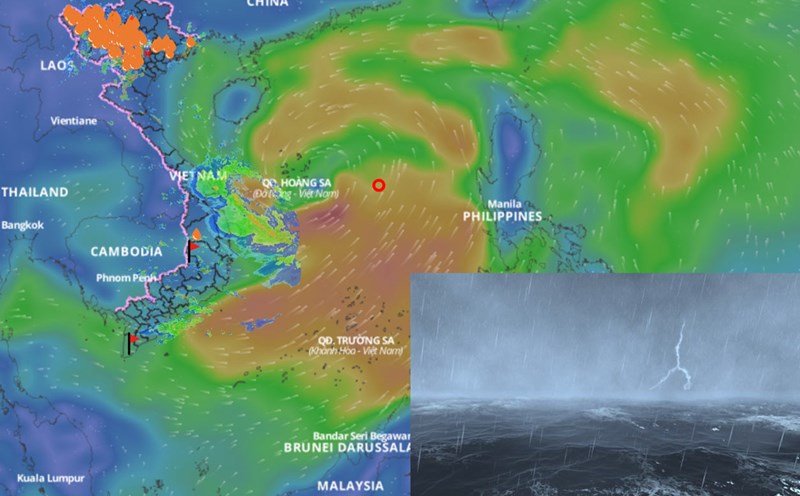This evening, June 10, the Ministry of Agriculture and Environment issued an official dispatch on proactively responding to heavy rain, the risk of floods, flash floods, and landslides in the Central, Central Highlands and Southern regions.
The document clearly stated that according to the bulletin of the National Center for Hydro-Meteorological Forecasting, from June 11 to June 13, the Central Central region (from Quang Binh to Quang Ngai) is likely to experience a period of moderate rain, heavy rain, locally very heavy rain with total rainfall ranging from 100 - 300mm, some places over 450mm.
The South Central, Central Highlands and Southern regions will have common rain from 30 - 150mm, locally over 200mm; locally heavy rain may appear over 200mm for 6 hours.
To proactively respond to heavy rain, the risk of floods, flash floods, and landslides, the Ministry of Agriculture and Environment recommends that provinces and cities continue to strictly implement the Prime Minister's Official Dispatch No. 76/CD - TTg dated May 28, 2025 on focusing on responding to the risk of heavy rain, landslides, flash floods and proactively preventing natural disasters in the coming time.
Closely monitor forecasts and warnings about heavy rain, floods, inundation, flash floods, landslides and provide timely and complete information to local authorities and people to proactively prevent them.
Deploy shock forces to inspect and review residential areas along rivers, streams, low-lying areas, areas at risk of floods, flash floods, and landslides to proactively clear the flow in areas with congestion and congestion; organize the relocation and evacuation of people to safe places.
In particular, organize forces to guard, control, support, and guide to ensure safe traffic for people and vehicles, especially at culverts, spillways, areas with deep flooding, fast-flowing water, areas where landslides have occurred or are at risk of landslides; resolutely not allowing people and vehicles to pass if safety is not guaranteed; prevent unfortunate damage to people due to carelessness and subjectivity; arrange forces, materials, and means to overcome incidents, ensure smooth traffic on main traffic routes when heavy rain occurs.
Check and review vulnerable works and unfinished works, including paying attention to dams, dykes, natural disaster prevention and control works; update response plans to ensure safety of works and downstream when floods occur.
Prepare a plan to ensure safety for rice, crops, and seafood; industrial parks, urban areas, residential areas, tourist areas along rivers, streams, and areas for tunnel and mineral exploitation. Prepare forces and means for rescue when required.
Direct local broadcasting and advertising agencies and mass media agencies to increase information about the developments of heavy rain to authorities at all levels, people, domestic and foreign tourists to proactively prevent in time.
At the same time, the on-duty staff should seriously and regularly report to the Ministry of Agriculture and Environment (through the Department of Dyke Management and Natural Disaster Prevention and Control).











